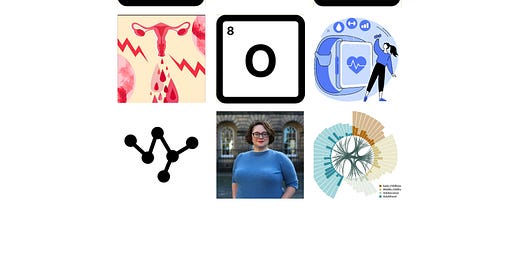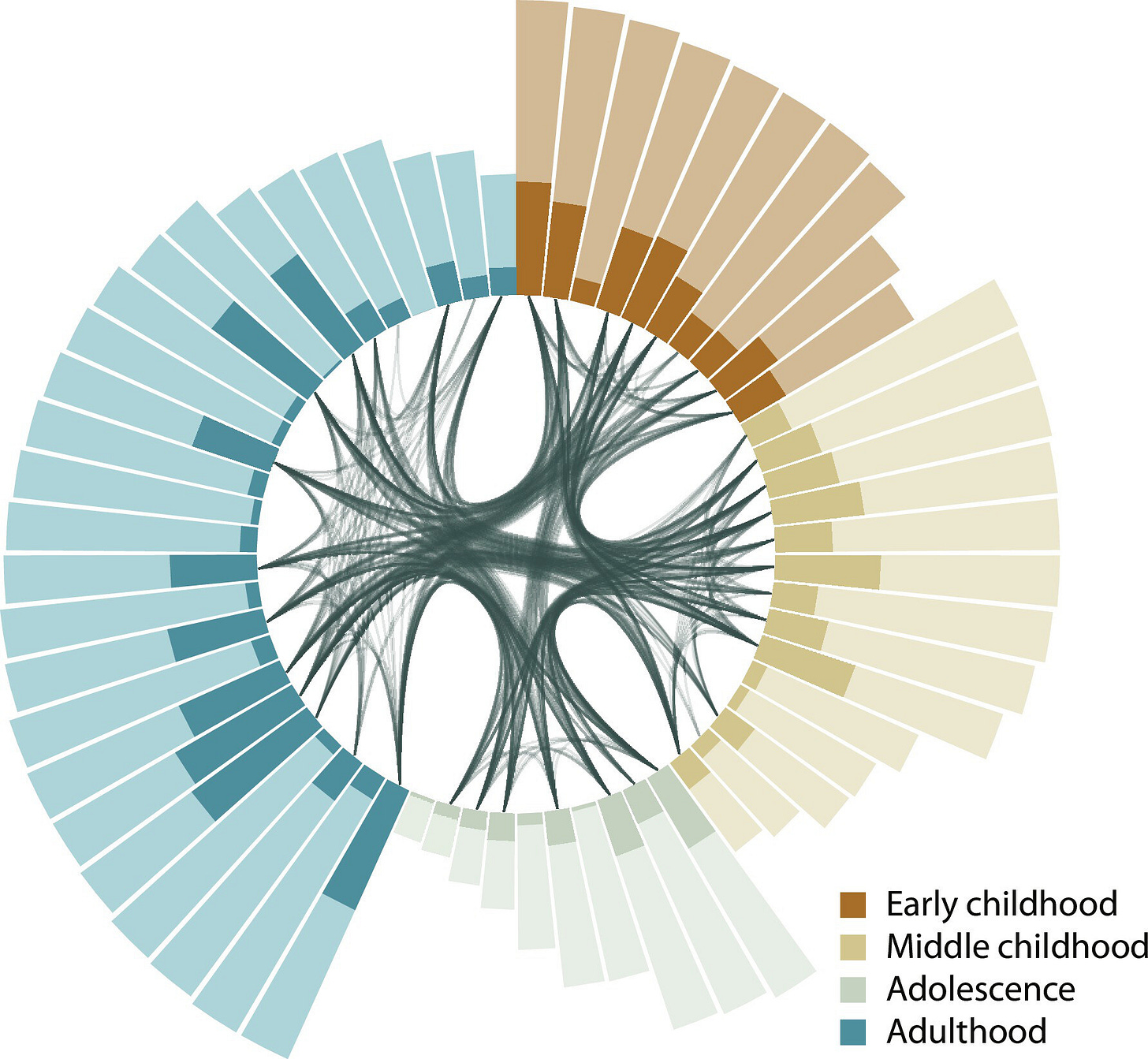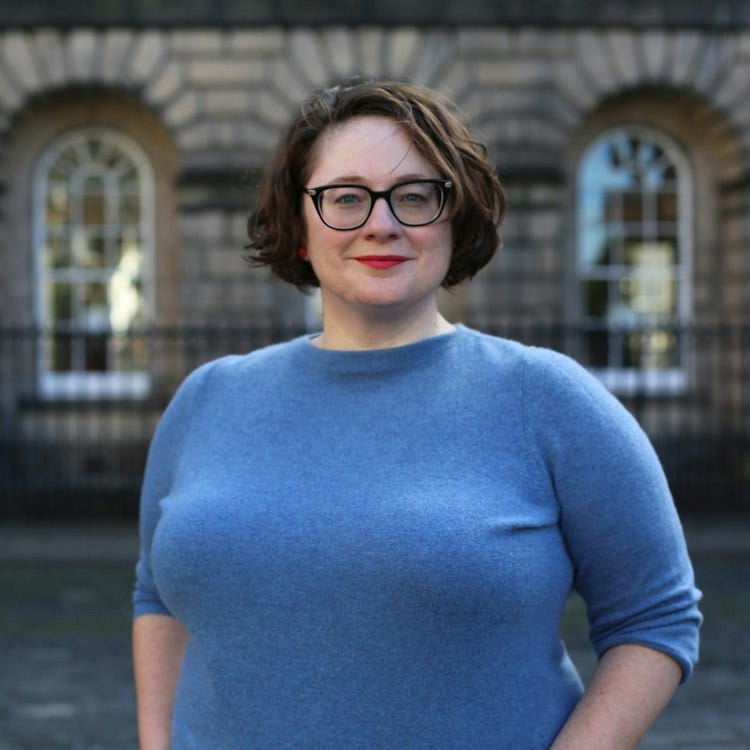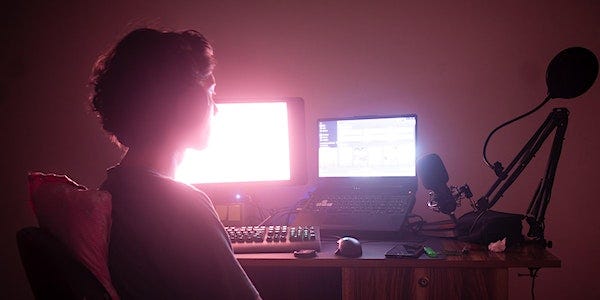Issue 8: Women of Science Jan '24
News, research, reviews, recommendations & some WOS NY predictions
Welcome back to Women of Science, featuring all the best happenings re: women of science every week 🧬 (and a belated Happy New Year!)
🔬 What to expect?
All subscribers receive the free edition covering weekly highlights in media, awards and discovery as well as things to read, see and watch re: women in science. Drops every Tuesday. Tell your friends:
Thank you for joining. Enjoy the read.
A quick run-down of this issue:
Abstract & Intro: News and updates on all things women of science
Materials, Methods, Discussion: Our "ones to watch" for 2024
Conclusions & Further Reading: Reccos, reads & links this week Abstract & Intro
Headlines, news & media snippets re: women of science this week
Healthcare: Here's why period cramps can hurt even more than a heart attack, according to science
Primary dysmenorrhea — the scientific term for painful period cramps — affects 50 to 90 percent of women, according to a 2019 article in JAMA Insights, half of whom describe the pain as moderate to severe. Despite that, the article said, painful camps are often "often underdiagnosed, inadequately treated, and normalised even by patients themselves."
General Science: In Brazil, one in two female researchers has faced sexual harassment
According to a report from the Brazilian Academy of Sciences (ABC) in Rio de Janeiro, this situation is common for female researchers in the country — especially those at early career stages. The report — Profile of the Early and Mid-Career Brazilian Scientist, published last September — finds that 47% of women have dealt with sexual harassment in Brazilian academia, compared with one in 10 men.
Human tears carry a substance that dampens down aggression, according to researchers from the Weizmann Institute of Science, who believe the drops may have evolved over time to protect wailing babies from harm.
Cancer Research: Professor Clare Isacke wins prestigious award for women in science
Professor Clare Isacke has been awarded the biannual Women in Science Achievement Award by the Metastasis Research Society (MRS). Professor Isacke is Professor of Molecular Cell Biology in the Breast Cancer Now Toby Robins Research Centre at The Institute of Cancer Research, London, where she is also Dean of Academic and Research Affairs.
& in other brief news:
🧠 How Gaps in Scientific Data Lead to Gaps in Care for Aging Women: Why 99 percent of aging research ignores menopause and what it means for women’s health, according to Harvard University researchers.
Materials, Methods, Discussion
A brief essay on what we (humbly) think could be the women-led initiatives, companies and people to watch in 2024:
Tech:
💍 The female-focussed Evie Ring will be heading for your digits in 2024, providing some healthy competition for wereables behemoth Oura, which itself has gone big on women’s health insights in 2023 and largely through its partnership with the period and fertility tracking app, Natural Cycles.
Medicine:
🧫 Evvy is paving the way for at-home vaginal microbiome testing, using this data to provide better vaginal health care to women through a growing network of providers whilst also spearheading Equal Research Day, dedicated to increasing awareness of the gaping holes that remain in women’s health research
Biology & physiology:
📲 App therapy for perinatal depression funded by the Research and Innovation for Global Health Transformation from the UK National Institute for Health and Care Research: A team led by the University of Liverpool has developed an app that allows a peer (a woman from the same community with no prior experience in healthcare delivery) to deliver a cognitive-therapy-based intervention to women in the second or third trimester of pregnancy who have major depression. The trial will compare the app with the standard face-to-face version of Thinking Healthy Programme therapy delivered by community health workers in rural Pakistan, addressing the treatment gap for a common mental disorder globally.
Physics:
🚀 2024 will hopefully see humanity return to the Moon for the first time in 50 years, whereby NASA’s Artemis II mission is scheduled to launch with a crew of four - including the first woman, and first person of colour, to join a lunar mission, and will lay the groundwork for the subsequent Artemis III mission, landing the first woman and next man on the Moon.
AI:
👩🏽💻 Dr. Fei-Fei Li holds the esteemed position of Sequoia Capital Professor in the Computer Science Department at Stanford University, and serves as the Co-Director of the Stanford Institute for Human-Centered Artificial Intelligence (HAI), contributing significantly to the institute's focus on interdisciplinary research and development in AI while considering its societal implications, making her an influential figure shaping the future of AI and technology.
Economics:
🕹️ Harnessing AI’s Transformative Power to Bridge the Gender Health Data Divide: The Femtechnology Summit released a report on the gender digital health data divide in late 2023, with a view to influence how we as a society chart our path forward in the digital age and confront the glaring void in women’s health data, leveraging AI to both recognise but also address the deficit.
Conclusions & Further Reading
More links & signposts for you to enjoy this week…
Publication of the week
Women’s subsistence networks scaffold cultural transmission among BaYaka foragers in the Congo Basin
In hunter-gatherer societies, women’s subsistence activities are crucial for food provisioning and children’s social learning but are understudied relative to men’s activities. To understand the structure of women’s foraging networks, researchers at the Max Planck Institute for Evolutionary Anthropology have presented 230 days of focal-follow data in a BaYaka community.
They found that during early childhood, individuals preferentially coforage with adult kin, but those in middle childhood and adolescence are likely to coforage with nonkin peers, providing opportunities for horizontal learning.
Why is this interesting? By quantifying the probability of coforaging ties across age classes and relatedness levels, the findings provide insights into the scope for social learning during women’s subsistence activities in a real-world foraging population, and provide ground-truth values for key parameters used in formal models of cumulative culture.
Read the full article at the link above 👆
Books & review articles:
👩🏾👩🏾👧🏾👧🏾 Forbes 50 Over 50: Europe, Middle East And Africa 2024: The members of the third annual 50 Over 50: EMEA list are shaping the future of science, fashion, finance, and even the Catholic Church. Here are the 50 founders, CEOs, humanitarians and vanguards across Europe, the Middle East and Africa, all proving that life’s second half is also its most successful and rewarding.
🔬 Remembering Betty Rollin, who told her breast surgeon that post-operative appearance mattered to her — and other women: Rollin, who died of voluntary assisted suicide in Switzerland in November at age 87, became a highly visible activist not only for women with breast cancer but also end-of-life issues, after she helped her mother die and then wrote about it.
👩🏽🔬 Meet the Indian women who toppled the boys-only science club by setting up their own: Vogue India sheds light on twelve women subverted the norms that denied them entry into the hallowed halls of science and formed the Indian Women Scientists’ Association in 1973. On its golden jubilee, Vogue India speaks to members old and new about how this female-driven community represents a radical departure within STEM.
Interview of the week:
2023 was the hardest year of my life. Here’s how I got my startup through it
Danae Shell is the co-founder and CEO of Valla, the DIY legal platform for consumers. In this insightful op-ed, she walks through how she brought her startup back from the brink of failure in 2023.
Podcast of the week:
The Crossroads Podcast: One from the archives, but insightful nonetheless: Via Giorgio Armani, host Charlie Teasdale interviews thirteen incredible women in thirteen different countries, asking them to share their stories of success; of overcoming difficulties; and the choices they made in order to become the women they are.
Out and about this week:
Creative Tech Dreams - Tech Networking Party: WeAreTechWomen are back for 2024, and whether you’re an enthusiast or you work in AI, UI, UX, VR or web3, this event is the perfect opportunity to connect with like-minded individuals who share your passion for technology and creativity.
Throughout the night, you’ll have the chance to mingle with other attendees and build valuable connections with professionals in your field (and tickets are under a tenner each!).
📍 Craven road, London: Wed, 17 Jan 2024 19:00 - 22:30 GMT
That’s all for this week!
Thank you for reading: The WoS mission is to support, share and promote the innovative and groundbreaking work that has been and continues to be done by women across all scientific disciplines, and to empower and inspire the next generation of female leaders in the field.
If you liked it, here’s another reminder to share us with your friends, network, neighbours, coffee baristas ☕ etc.:
Over the coming months, the WoS community will also be adding to its repertoire of channels for sharing content, so watch this space!











